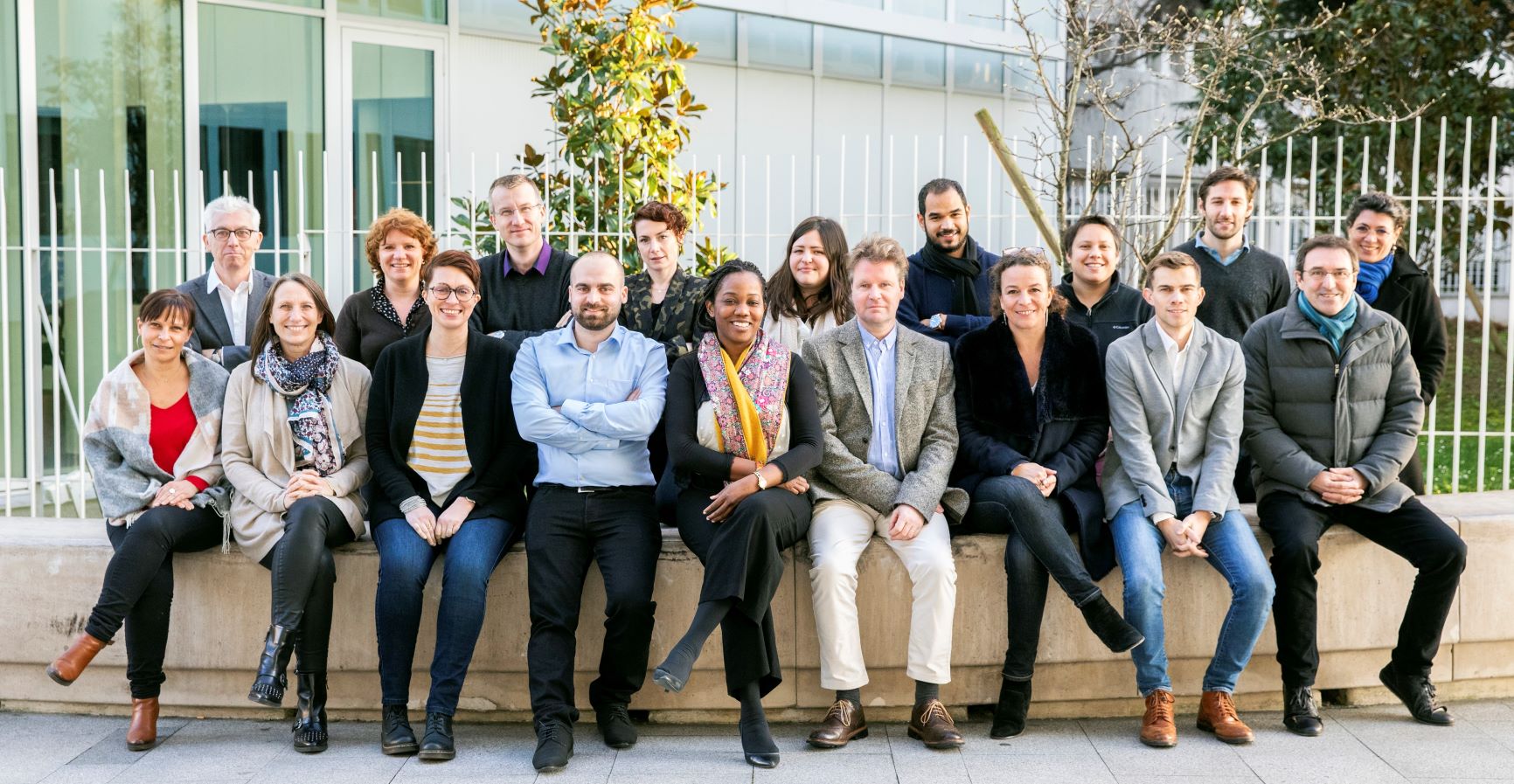Inria Startup Studio celebrates its first birthday
Date:
Changed on 10/01/2023

Although research is very much a key concern for Inria, it is not the institute’s only area of focus. In addition to scientific excellence, Inria is also keen to promote a spirit of entrepreneurship by helping to launch start-ups.
This commitment to supporting and backing tech start-ups dates back 20 years to the creation of I-Source and the ultra-seed fund IT-Translation, and has led to the launch of more than 200 start-ups which began life within Inria. In September 2019, Inria launched Inria Startup Studio, a programme which provides tailored support for digital deep tech projects. The aim is to draw on scientific and technological expertise, as well as on the talents of prospective entrepreneurs looking to build new projects.
One year on, Startup Studio, which is targeted at PhD students, postdoctoral researchers, interns, engineers and Inria researchers, as well as employees of other partner research bodies in France and leaders of projects external to Inria, has attracted close to thirty start-up projects. All of these start-ups develop technology aimed at making breakthroughs in industries ranging from agritech, edtech and medtech to e-commerce and transport.
One of these is Aureax, who are developing a haptic navigation tool for cyclists that will allow them to navigate safely while keeping their eyes and ears focused on their journey. Another is Flit Sport, who are developing a medical monitoring tool (cardiac) for top-level athletes that will help them to train better using a smartphone application connected to a heart rate belt. Gazouyi, meanwhile, is a parental assistance project designed to aid children’s development through the use of a dedicated application.
A list of all of the projects provides an illustration of the range of sectors: software (AI Verse, Concordant, Deepsketch, Kaktus, Terriflux, Tessael), medtech/healthcare (Anaest-Assist, Fantomes, Gazouyi, Neurodecode), foodtech/agritech (AgriBIoT, Greenfarm Robotics, RoboChef), transport (Aureax, Avacar, CrowFox), edtech (Naimrod, Axiome), media - entertainment (HapticMove, Liminal, PikiSport, Pressmium, Skini), sportech (FlitSport), e-commerce (Closacy, Marnadil) and security (Daspren), Industrial IoT / industry 4.0 (Stackeo).
In recent months, despite the health crisis, all project leaders have been given support tailored to meet their needs, including funding; hosting; specific tools; advice; and logistical, technological and sometimes even moral support: “Being an entrepreneur is a solitary pursuit. You question yourself a lot, and it can be frustrating, but there are little victories as well. The weekly catch-ups with Sophie and Hervé (the directors of Startup Studio) are like a lifebuoy - project leaders sharing experiences provides a way of constantly putting results in perspective (whether good or bad), enabling a greater degree of objectivity on events”, explains Laurent Bachet, founder of Greenfarm Robotics. The start-up, which Inria Startup Studio has been supporting since May, develops suspended wire robots that are an alternative to tractors, helping farmers to overcome constraints and damage linked to the soil while reducing the impact agriculture has on the environment.
This view is shared by Justine Bonnot, founder of Kaktus, a software tool for optimising integrated applications in embedded systems: “Aside from technical support, financial support provides a means of testing an idea without taking any risks, which is extremely useful, especially when you’ve just finished a PhD. On top of that, the ecosystem we’re in is extremely vibrant: we have close ties to other projects, we talk a lot, and we take advantage of both the internal network and technical support from Inria engineers, which is a real plus,” explains Justine.
Headed up by its two directors, Sophie Pellat and Hervé Lebret, plus the innovation teams from the institute’s eight research centres, Inria Startup Studio is now setting its sights higher, and is aiming to support around 100 start-ups a year by 2023.
This goal, which was outlined in the 2019-2023 Performance Agreement Inria signed with the French government, is one that all of the centres are already preparing for, chiefly through expanding their entrepreneurial teams: “In the past, in Nancy, we had roughly one project a year. The upcoming arrival of an Innovation Projects and Partnerships Officer dedicated to start-ups will enable us to be more proactive and to make better use of the centre’s potential when it comes to getting new start-ups off the ground”, explains Emmanuel Gothié, Innovation Projects and Partnerships Officer at the Inria Nancy Grand-Est research centre.
In order to reach this goal, the innovation teams from Inria’s eight research centres, who maintain close ties with project leaders in addition to providing operational support, will also be responsible for fostering a spirit of entrepreneurship in centres so as to enable potential new projects to emerge.
More start-ups will mean more issues to solve, but this isn't something the Startup Studio community is worried about: they have been working from the outset to be able to handle all sorts of situations. The Startup Studio directors speak with the innovation teams from the different centres each week to discuss progress made with projects, processes and best practice: “Speaking with Hervé and Sophie has taught us a lot and reaffirmed some of our feelings regarding how we approach support at a local level”, explains Emmanuel Gothié. “This way of working with everyone has really boosted our impact. The more different situations you see, the better you get at developing solutions that are applicable to other subjects”, concludes Patrice Gelin, who manages the Innovation Projects and Partnerships Department at the Inria Rennes Bretagne Atlantique research centre.
Through this high quality monitoring and support, the aim is to boost the number of start-ups from the world of French research in digital, from which will emerge stakeholders with a global impact and projects that will help to develop France’s industrial fabric. This ambitious objective wouldn’t be possible without a pipeline of internal and external talent, researchers, engineers, PhD students and postdoctoral researchers, recruited from the very highest levels of academia.